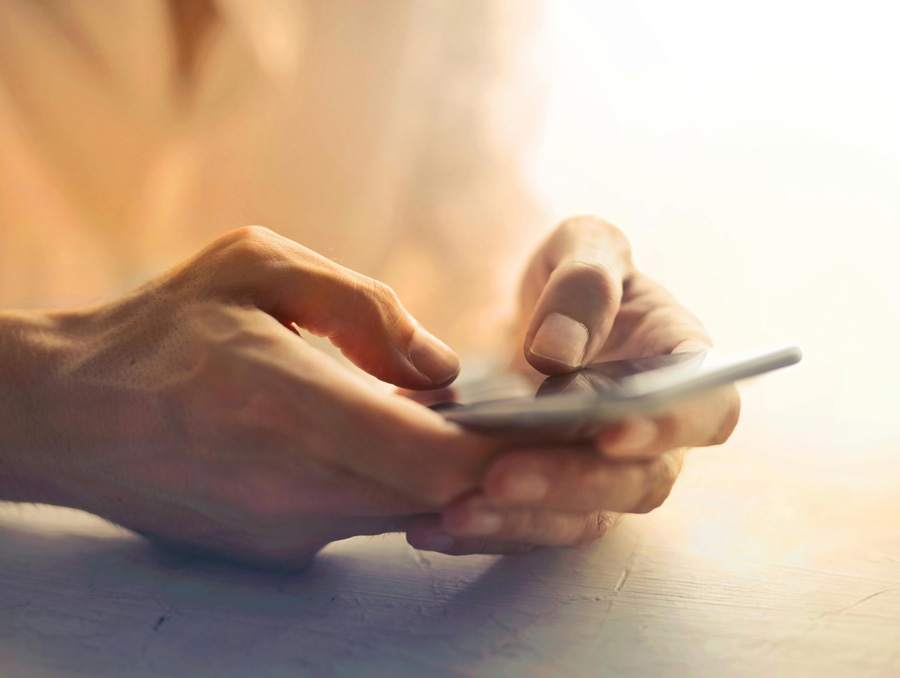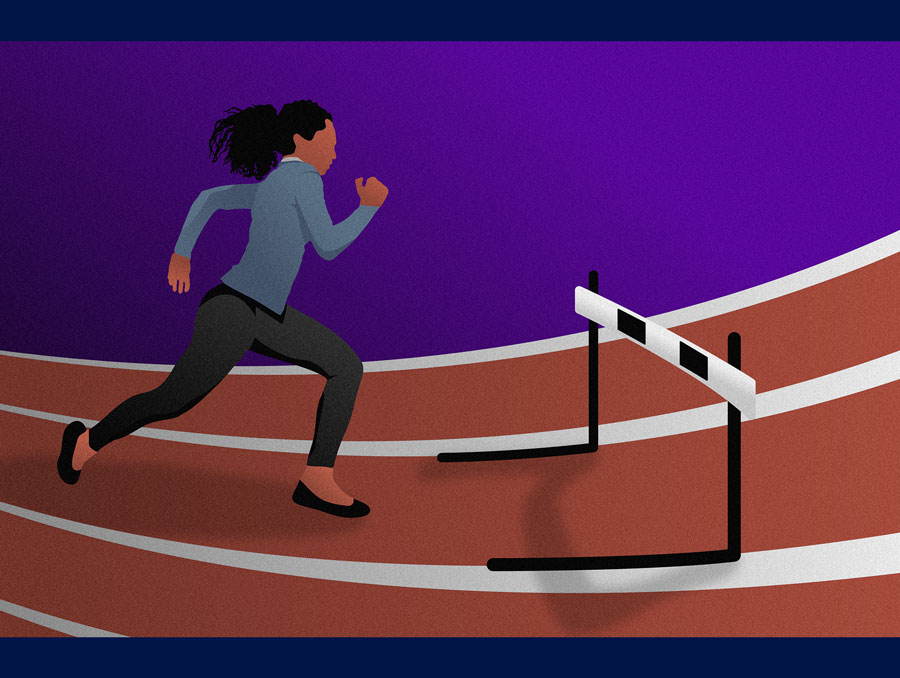Recent findings from research in the Department of Psychology in the College of Science at the University of Nevada, Reno found that in younger people, increased screen time on devices like smartphones and tablets was not linked to a decrease in working memory. Undergraduate and graduate students in Professor Marian Berryhill’s lab contributed to the article.
The research article, “Changed detection: No relationship between working memory and media usage in Covid‑era and contemporary young adults,” was published in the journal Attention, Perception, & Psychophysics in April.
“We use working memory every day, all the time,” Jenna Pablo, a doctoral student in the Cognitive and Brain Sciences graduate program and coauthor on the recent publication, said.
Working memory allows your brain to remember important information while discarding unimportant information. Use of modern digital technology is a constant test of working memory. While scrolling through news articles online, advertisements try to grab your attention. Working memory allows you to scroll past those ads and focus on the news story you want to read.
“Multitasking is about how well you can attend to something and ignore something,” Pablo said. “Today, all of our media involves multitasking.”
Revisiting old findings
Research done over a decade ago showed that the constant bombardment of information from technology harmed working memory.
“We really wanted to revisit the question of whether there would still be harmful effects of media multitasking in today's sample, which are mostly what we call digital natives,” Pablo said.
Digital natives are those born in the late 20th century onward, who grew up using digital technology. Prior studies were done with people who weren’t using digital technology as heavily as we do today, particularly since the COVID-19 pandemic when much of our day-to-day lives went online.
Several studies have shown that screen time increased in children during the COVID-19 pandemic. Coinciding with that rise in screen time was the rise of short-form video content platform TikTok. Participants in the research study logged around 6 hours per day on their most-used device (for a majority of participants, that was their phones). Most of that time was spent on social media, though some of that time can be attributed to schoolwork through notetaking applications.
The experiments from this study were conducted shortly after the pandemic began and asked participants to pay attention to the color and orientation of rectangles that would flash on their screen. These flashes lasted only 100 milliseconds, followed by 900 milliseconds of a blank screen. Importantly, some rectangles were designated targets, and other colors were distractors meant to be ignored. Participants were asked to identify whether a target rectangle’s orientation changed from a reference image. A similar version of this experiment was conducted using audio cues.
“We found that there was no negative impact on working memory in digital natives,” Pablo said.
Researchers used the same kinds of working memory experiments as earlier studies that previously found harm to working memory associated with screentime. The same experimental setup was used to ensure differences in the findings could be attributed to the population.
“Reproducing findings is a huge problem, so it’s not to say those studies are wrong, but maybe something different is happening now,” Pablo said. “As technology is updating, we’re possibly updating with it.”
The research study started with a curious undergraduate, Joseph Castellanos ’22 (neuroscience). Castellanos was interested in how screen time affects working memory and worked with Berryhill and Jorja Shires ’25 Ph.D. (cognitive and brain sciences) to develop a research project, which was funded by Undergraduate Research with a Nevada Undergraduate Research Award (NURA). The project had to be transitioned to an online format with the onset of the pandemic, but they were still able to conduct the experiments.
“Being involved in research as an undergrad introduced me to the research process and taught me persistence and critical thinking,” Castellanos said. “Those lessons continue to shape how I approach medicine today, keeping me curious and engaged with advancing medical knowledge.”
When Castellanos graduated in 2022, new undergraduates continued work on the project. Muskan Kapila ’24 (neuroscience) and Lena Kemmelmeier '25 (neuroscience, psychology) worked with Berryhill and Pablo, and both contributed to the project by helping collect data.
Castellanos is now attending medical school at Tufts University. Kapila recently completed a post-baccalaureate pre-med program and will be starting medical school fall of '26. Kemmelmeier started her Ph.D. in psychology at the University of California, San Diego after graduating as a Westfall Scholar in the spring.
While the NURA was the start of the project, Castellanos also received funding from the Undergraduate Research Opportunities Program and the Pack Research Experience Program, along with another NURA. Kemmelmeier also received three NURAs.
“Even small funding sources like these that are made to give undergraduates research experience, turn into real, publishable projects, and it helps everyone,” Pablo said.
“In the laboratories in the Department of Psychology, our stellar undergraduates are doing real, peer reviewed research and earning authorship on publications,” Berryhill said. "They learn that research takes time and money. This work is supported by fantastic programs offered by Undergraduate Research, such as the NURA. The NURA is essential because it allows undergraduates to earn money for working in the lab, thereby helping talented, motivated students who would not be able to afford to volunteer their time gain valuable research experience. Importantly, there is greater demand than funding availability, and we are grateful for any and all funding to support research."
Berryhill is interested in continuing to explore our changing cognition.
“All projects are secretly hydras and answering one question raises many others,” Berryhill said. "Specifically, the arrival of smartphones changed behavior and cognition in ways we are only beginning to study. We would like to continue to understand these effects going forward, with help from undergraduate research assistants!"
“It is a little comforting to know maybe you're not harming your executive function, maybe,” Pablo said, “or it's that media usage today likely imposes a more nuanced effect on cognition than we once thought.”
















